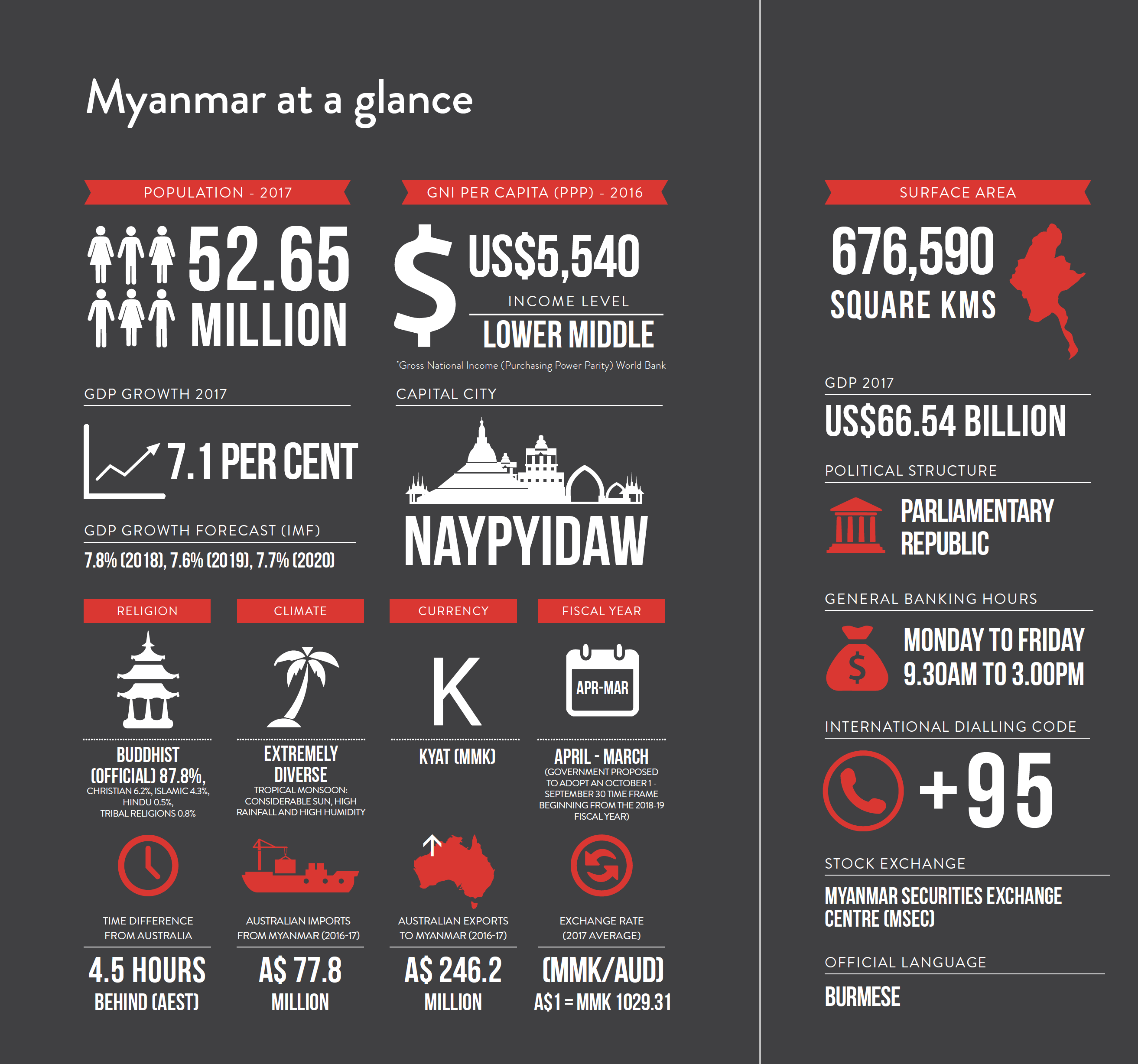Doing Business in Myanmar
Myanmar is an emerging market with significant potential. Australian businesses are increasing their presence in the energy and resources, infrastructure, finance and banking sectors.
Myanmar is an emerging market with significant potential. Australian businesses are increasing their presence in the energy and resources, infrastructure, finance and banking sectors.
Myanmar (formerly known as Burma) is an emerging market with significant potential. As a result of governmental reforms which have begun to improve the business climate and provide more favourable conditions for foreign businesses entering the market, Australian businesses are increasing their presence in the energy and resources, infrastructure, finance and banking sectors. ANZ, Woodside and Bluescope Steel established a commercial presence in Rangoon in 2013, and in the same year our government opened an Austrade office in the city.
Yet doing business in Myanmar is still very difficult, and further progress is required before Myanmar can be considered a stable business environment. A lack of transparency, weak infrastructure and an inadequate judicial system have been cited as barriers to trade and investment. However, a number of laws and regulations are under internal revision, and the government has been hosting information sessions to engage foreign firms with an interest in doing business there.
Myanmar is a party to the ASEAN-Australia-New Zealand Free Trade Agreement (AANZFTA), which delivers benefits for Australian businesses in the areas of tariff reduction and elimination, economic engagement and cooperation, greater certainty for service suppliers and investors and supply chain opportunities.

Governmental reforms have begun to improve the business climate.
Myanmar (formerly known as Burma) is an emerging market with significant potential. As a result of governmental reforms which have begun to improve the business climate and provide more favourable conditions for foreign businesses entering the market, Australian businesses are increasing their presence in the energy and resources, infrastructure, finance and banking sectors. ANZ, Woodside and Bluescope Steel established a commercial presence in Rangoon in 2013, and in the same year our government opened an Austrade office in the city.
Yet doing business in Myanmar is still very difficult, and further progress is required before Myanmar can be considered a stable business environment. A lack of transparency, weak infrastructure and an inadequate judicial system have been cited as barriers to trade and investment. However, a number of laws and regulations are under internal revision, and the government has been hosting information sessions to engage foreign firms with an interest in doing business there.
Myanmar is a party to the ASEAN-Australia-New Zealand Free Trade Agreement (AANZFTA), which delivers benefits for Australian businesses in the areas of tariff reduction and elimination, economic engagement and cooperation, greater certainty for service suppliers and investors and supply chain opportunities.
Want to keep up to date with business developments and opportunities in the Asian region? Check out the Asialink Business news and media updates, as well as the Asian market research & resources available.
Business matters may often seem ambiguous.